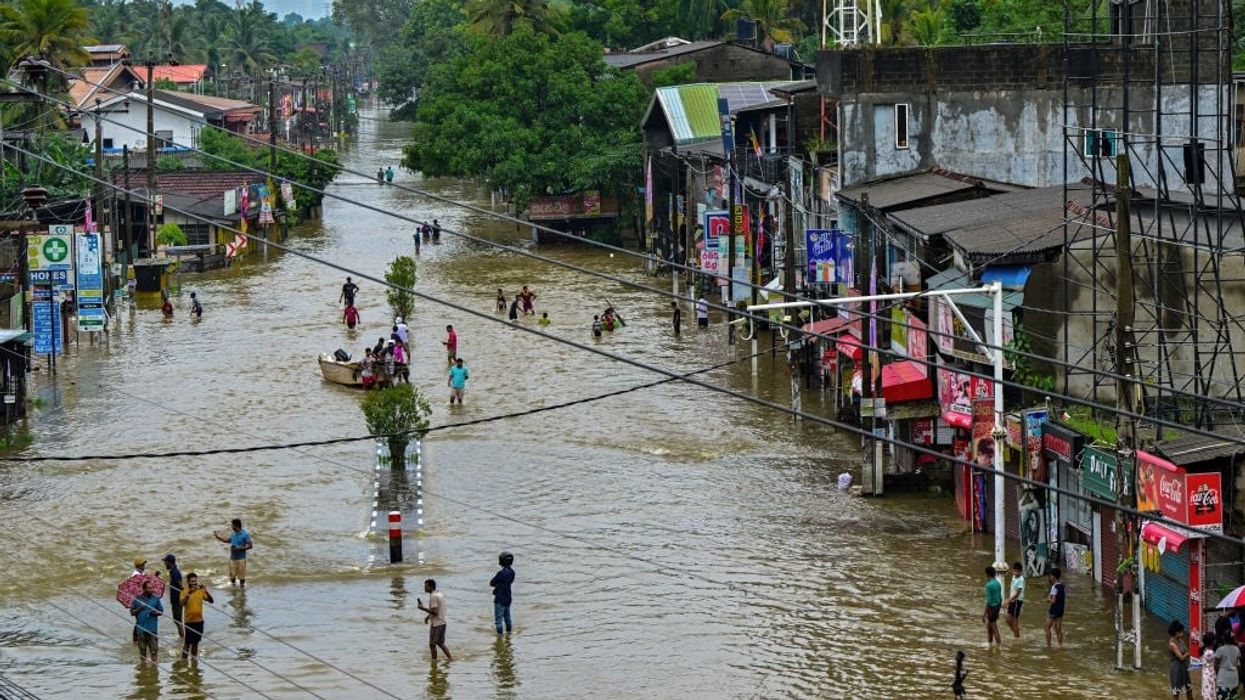AT LEAST 30 people have died due to extreme rains and floods that have devastated Sri Lanka since May 15, state minister of defence Premitha Bandara Tennakoon told Parliament on Wednesday (5).
Heavy monsoon showers have destroyed 71 houses while another 9,300 suffered partial damage. Some 825 small and medium-scale industries have suffered damages alongside 63 infrastructure system setups, Tannakoon said.
"We have deployed the military to assist the relief operations," Tennakoon said. "Boats have been deployed to help with the supply of relief."
The deaths have been reported from 10 districts, including the capital Colombo, where torrential rains exceeding 300 mm caused flash floods, fallen trees, high winds, lightning, and earth slips.
The Disaster Management Centre has issued flood warnings for the basins of several rivers from different districts as more rains and high winds are expected.
Earth slip red notices have been issued in respect of four districts by the National Building Research Centre.
On Monday (3), Sri Lanka closed schools as heavy rain triggered floods and mudslides in many parts of the island nation. Over 5,000 people were moved to evacuation centres.
Navy and army troops have been deployed for rescue work and also to provide food and other essential items to affected areas.
More than 19,000 persons from over 5,000 families were marooned over the weekend as severe monsoonal downpours inflicted widespread devastation in 20 of the 25 administrative districts that have been severely affected, authorities said.
Sri Lanka depends on seasonal monsoon rain for irrigation as well as hydroelectricity, but experts have warned that it faces more frequent floods as the world heats due to climate change.
Sri Lanka's main weather bureau forecast an easing of rains but said the threat of floods had not receded. Low-lying areas remain swamped.
(Agencies)





